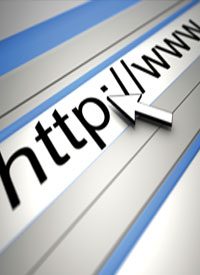
The Internet is an incredibly useful tool for ordinary Americans. Through the magic of an inexpensive computer, a whole world of information and social networking is at one’s disposal almost instantaneously. Not only can persons with minimal computer skills track the news of the day, they can learn about measures being proposed by government, contact their legislators to express their own views about what’s being proposed, even organize with others to effect change. True enough, there’s misinformation and disinformation also available on the Internet. Discernment rather than blindly accepting what appears there is very much in need.
It’s no secret that daily visiting the Internet has become routine for most Americans, all of whom are delighted about its availability — except those who would want to keep the public in the dark and deny them an incredibly powerful communications and organization tool. Who would want to do that? Government, that’s who. The Internet has become a thorn in the side of leaders who seem determined to establish control over everyone and everything. So a proposal has been offered that would go a long way toward controlling cyberspace
Ostensibly crafted to “protect cyberspace,” the Cybersecurity Act of 2009 (S. 773) is a comprehensive measure that, if enacted, would give the President the power to “declare a cybersecurity emergency and order the limitation or shutdown of Internet traffic.” The shutdown would affect traffic “to and from any compromised Federal Government or United States critical infrastructure information system or network.” In other words, every portion of the Internet is covered. If the bill becomes law, the federal fox would be the sole guardian of the people’s hen house.
Introduced by Senator Jay Rockefeller (D-W.Va.) on April 1, 2009, the bill has mercifully attracted only three cosponsors: Evan Bayh (D-Ind.), Bill Nelson (D-Fla.), and Olympia Snowe (R-Me.). One can get an idea of the totalitarian intent of these backers of S. 773 by simply reading the bill, especially its Section 18, “Cybersecurity Responsibilities and Authority.”
S. 773’s text begins by claiming that Congress has determined that “America’s failure to protect cyberspace is one of the most urgent national security problems facing the country.” Really? What about the $100 trillion national debt (counting what is admitted and what exists in unfunded obligations)? What about the steady transfer of U.S. independence to an array of United Nations agencies, commissions, and treaties?
Next follows the testimony of a dozen experts who proclaim a need for government to protect the Internet. Mention is made by a “senior advisor to the Obama Transition Team” of a possible “cyber-Katrina.” A speech given in 2008 by then-candidate Obama contains a warning about terrorists who “could use our computer networks to deal us a crippling blow.” The former Director of National Intelligence told President Bush in 2007 that a cyberspace attack would have been “an order of magnitude greater” than the 9/11 attack on the World Trade Center.
The bill then mandates that the President “shall” appoint a Cybersecurity Advisory Panel. No option here; he must create such a body. The panel “may” but would not be required to “seek and give consideration to recommendations from Congress” and others. In other words, the President and his appointed Cybersecurity Advisory Panel shall have supreme authority over the Internet.
The measure states that once he declares a cyber emergency, the President shall possess numerous powers including authority to “order the disconnection of any Federal Government or United States critical infrastructure information systems or networks in the interest of national security.” Nowhere in this 13-page bill is there any definition of what might constitute such an emergency. Nor is there any requirement that the President inform the nation about reasons for such a declaration. Our nation has been victimized by several Presidents who declared a “national emergency” in order to impose their will. This bill would allow a shutdown of the Internet because of a real or concocted emergency.
In December, China’s government censors imposed new limitations on the ability of its citizens to create their own websites, view hundreds of already established sites, and even play video games. The Beijing government, already possessed of totalitarian control, fears that the Internet could be used by political opponents to undermine its power. Public Security Minister Meng Jianzhu labeled the Internet “an important avenue through which anti-China forces infiltrate, sabotage and magnify their capabilities for destruction.” Not needing any declaration of a “cybersecurity emergency,” Meng just imposed the will of the communist government.
Americans must guard against any attempt to duplicate the power possessed by the Beijing government, even if it might be accomplished through a “legal” procedure such as is contained in S. 773. At present, chances for passage of this thinly disguised Internet-control measure appear slim. But the enemies of freedom are alive and active in our nation. No one who cherishes liberty, including freedom on the Internet, should fall asleep.



